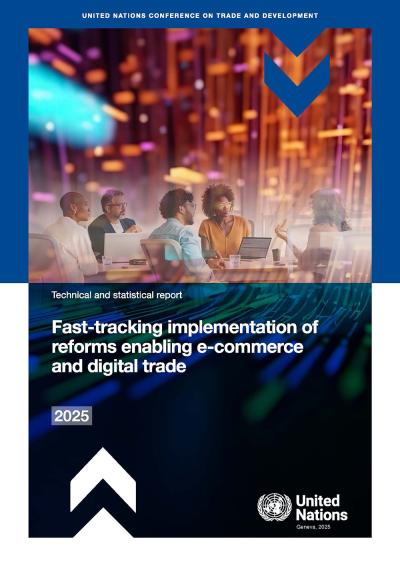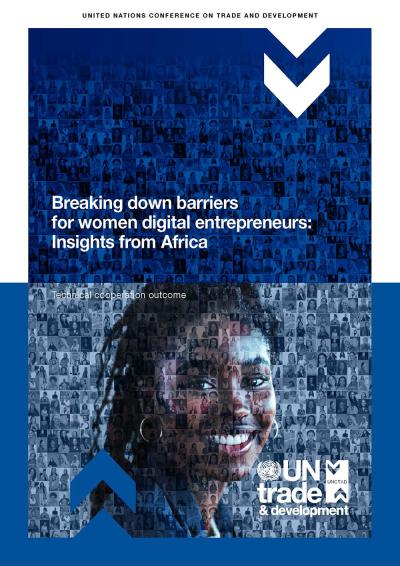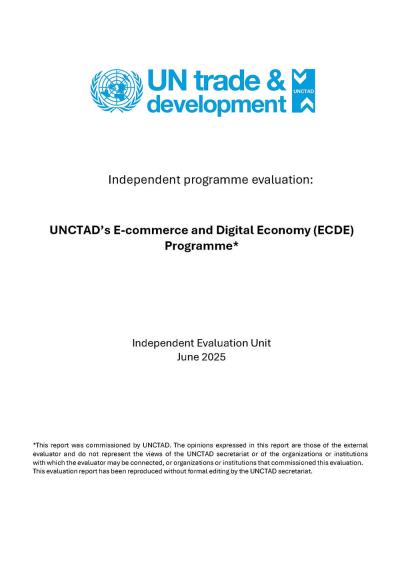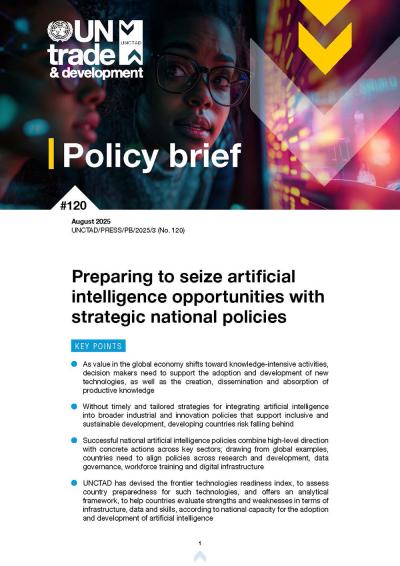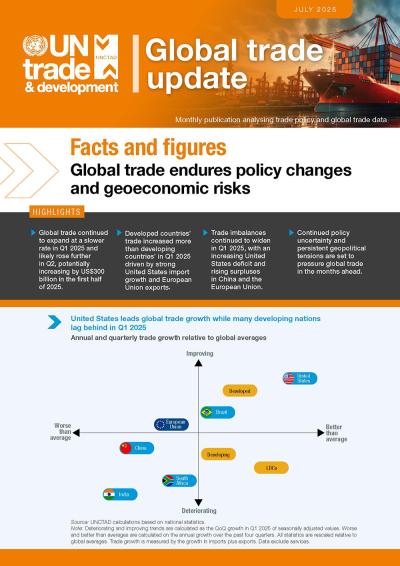Stronger statistics to measure e-commerce and the digital economy
The digital economy needs to become more “statistically visible”, particularly in developing countries, for evidence-based policymaking and inclusive development.
What role for e-commerce and the digital economy in sustainable development?
Digitalization is the biggest megatrend of the century. Digital technologies are transforming the way we live, work, consume and do business. The COVID-19 pandemic accelerated the digital transformation, creating new opportunities for growth and jobs through new business models, greater market access, and better participation in regional and global value chains. For consumers, e-commerce and the digital economy offer the potential benefits of greater convenience, lower prices and more choice.
Data is now critical to be competitive in many sectors. The Internet of Things and artificial intelligence are transforming how we produce and access goods and services, with unprecedented implications for our lives that are not yet fully understood. How the world deals with data will greatly impact all the UN’s Sustainable Development Goals.
While digitalization represents a powerful force for good, the ability of countries to benefit from it varies greatly. The digital divides between developed and developing countries are widening. Many developing and especially least developed countries (LDCs) need better digital infrastructure, skills, resources and access to capital, as well as more enabling environments to participate in and benefit from e-commerce and the evolving digital economy.
This increases the risk that digitalization could widen many inequalities, both between and within countries. Effective digital cooperation is essential to achieve development outcomes that are inclusive and socially and environmentally sustainable.
UNCTAD's work on e-commerce and the digital economy for sustainable development
As the focal point within the United Nations system for the integrated treatment of trade, finance, technology, investment and sustainable development, UNCTAD is well positioned to play a leading role in the area of e-commerce and the digital economy.
Through our three pillars of work – policy research and analysis, technical cooperation and consensus building – and the ability to leverage effective multi-stakeholder partnerships, UNCTAD contributes to building a more inclusive digital economy in four main ways.
Research and analysis
We provide evidence and analysis on the policy options at the national, regional and global levels in the data-driven digital economy to support sustainable development.
This includes the Digital Economy Report series, as well as thematic studies, technical notes and statistics related to e-commerce and the digital economy.
Technical cooperation
We work with policymakers and other stakeholders in developing countries to build capacities to participate in and benefit from the digital economy – and to do so in a gender-responsive manner.
This involves assessing the state of play of a country’s e-commerce environment and providing recommendations to overcome barriers and bottlenecks identified through eTrade readiness assessments. It also involves formulating e-commerce strategies and action plans.
Additionally, we review countries’ competition and consumer laws and policies to assess whether they are fit for today’s digital markets.
This is done through voluntary peer reviews on competition and on consumer protection. We accompany developing countries to fast-track the implementation of policy recommendations.Other technical assistance we provide includes building the capacity of lawmakers, policymakers and other relevant authorities in developing countries to analyze the legal issues underpinning e-commerce and the digital economy, establish national and regional legal frameworks, and ensure effective implementation.
We also provide support to improve the availability of timely, robust and comparable official statistics on e-commerce, the digital economy and digital trade.
Women’s empowerment
Through the eTrade for Women Initiative, we empower women entrepreneurs in developing countries to thrive as business leaders in the digital economy and emerge as influential voices in public policy debates.
Also, through our Trade, Gender and Development Programme, we support the development of e-commerce policies that respond to women entrepreneurs’ needs and provide opportunities to them.
Consensus-building and coordination
We pave the way for international digital cooperation to be more effective, efficient and transparent.
This is done through intergovernmental consensus-building (intergovernmental groups of experts on e-commerce and the digital economy, competition and consumer protection), a global multi-stakeholder dialogue (UNCTAD eWeek), and coordination and partnerships (eTrade for all).
The intergovernmental set-up offers a valuable opportunity for all countries to contribute to global digital economic governance discussions.
We work with the Office of the UN Secretary-General’s Envoy on Technology and other parts of the UN, as well as the G20, the OECD, the BRICS and other international organizations to explore ways to harness e-commerce and the digital economy that promotes sustainable development.
More news
Latest publications
Featured series
Videos and podcasts
Related
Secretary-General Statements
23 October 2025
UNCTAD16 Closing Ceremony
21 October 2025
UNCTAD16 ministerial roundtable: Making the digital economy inclusive and sustainable through cooperation
25 September 2025
4th Global Digital Trade Expo
16 September 2025
International Day of Science, Technology and Innovation 2025
15 July 2025
ECOWAS e-commerce meeting and eTrade for women joint workshop
22 May 2025
Indonesia eTrade Readiness Assessment: National multi-stakeholder consultations
Meetings
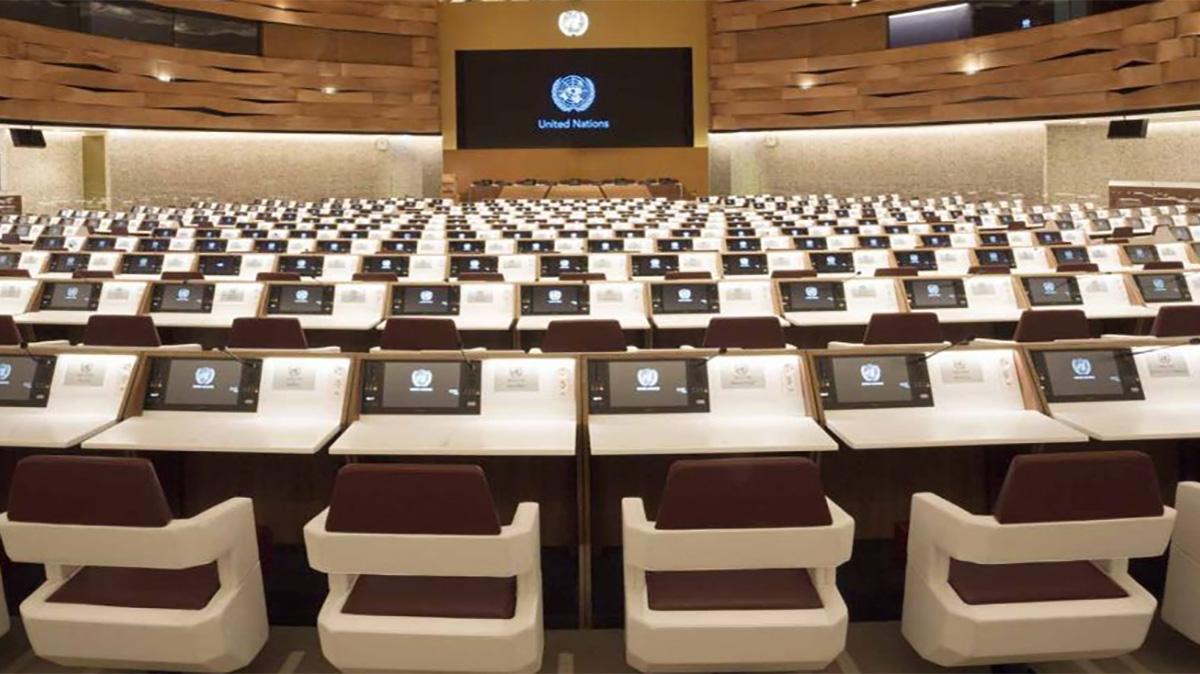
11 – 13 May 2026
Intergovernmental group of experts on e-commerce and the digital economy, 9th session
Geneva, Switzerland10 – 13 March 2026
eTrade for Women Masterclass for Francophone Africa
Benin4 – 5 December 2025
Working group on measuring e-commerce and the digital economy, 6th meeting
Geneva, Switzerland27 – 28 November 2025
Advanced eTrade Reform Tracker Training Workshop for the ECOWAS Commission
Abuja, Nigeria18 – 21 November 2025
eTrade for Women Masterclass for South-East Asia and the Pacific
Manila, Philippines29 – 30 October 2025
Validation workshop for the Mauritania E-commerce Strategy
Nouakchott, MauritaniaDocuments
21 Nov 2025
Accélérer les réformes en faveur d’une économie numérique inclusive et durable 2025
19 Sep 2025
Management Response to the independent evaluation of UNCTAD's E-commerce and Digital Economy (ECDE) Programme
20 Aug 2025
Independent programme evaluation: UNCTAD's E-Commerce and Digital Economy Programme
Contact
For further information on this topic, please contact us.










